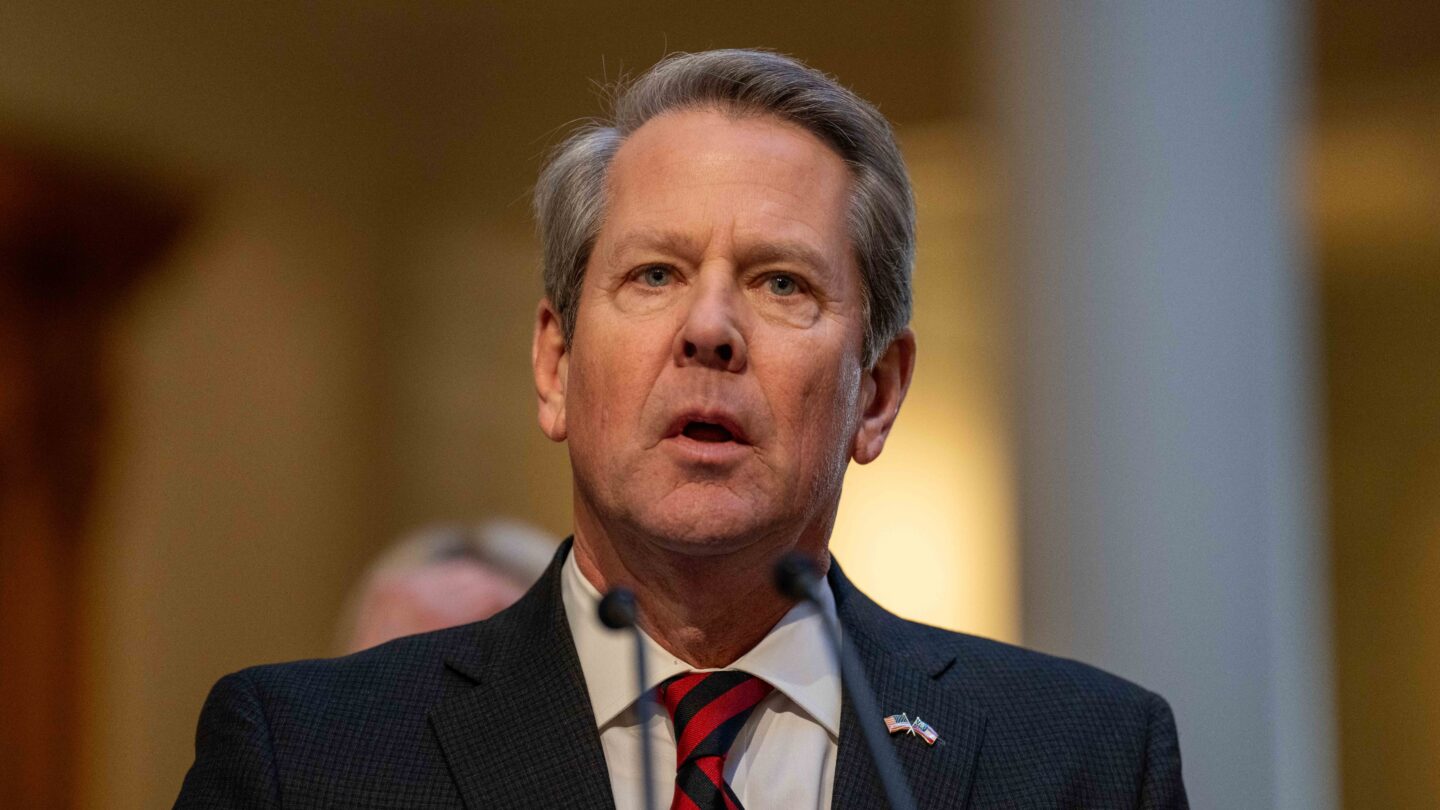Georgia governor signs budget boosting spending, looking to surplus billions to cut taxes in future

Georgia Gov. Brian Kemp is both increasing spending and cutting taxes as state tax revenues decline, saying he is looking to the state’s billions in surplus to allow him to remain on that course.
The Republican governor on Tuesday signed a $36.1 billion budget for the year beginning July 1 that will boost pay for public school teachers and state employees, while spending more on education, health care and mental health.
Including federal money and other funds such as college tuition, the state will spend $66.8 billion overall.
In remarks to reporters at the state Capitol after signing the spending plan, Kemp said this year’s legislative session “offered something for everybody.”
Georgia has $5.4 billion set aside in its rainy day fund, which is filled to its legal limit of 15% of state revenue. Beyond that, it had $10.7 billion in surplus cash collected over three years. Lawmakers approved Kemp’s plan to spend more than $2 billion of the surplus in changes to the current budget, which ends June 30. But that would leave more than $8 billion in reserve.
Kemp said it was important to hold on to that money to fulfill his promise to reduce the state income tax rate while maintaining higher spending levels.
“We also want to be prepared in the future with our commitment to continue to cut taxes, which we have a plan to take the rate down below 5%,” Kemp said. “So to be able to do that, we’ve got to fund our priorities, but also budget within our means and balance our budget. And that’s what we did this year.”
Public school teachers will get a $2,500 raise starting July 1, which could boost average teacher pay in Georgia to $67,000 annually. That is in addition to a $1,000 bonus Kemp sent out in December. Prekindergarten teachers also would get a $2,500 raise.
State and university employees also would get a 4% pay increase, up to $70,000 in salary. The typical state employee makes $50,400.
Some employees would get more. State law enforcement officers would get an additional $3,000 bump, atop the $6,000 special boost they got last year. Child welfare workers also would receive extra $3,000 raises.
The state will send $200 million more to school districts to help them buy and operate school buses and will spend $104 million more for school security, giving $45,000 grants to each school.
Health care providers will also see a boost. The state will spend more than $160 million to increase what it pays to nursing homes, home health care providers, dialysis providers, physical and occupational therapists and some physicians.
Spending in next year’s budget will actually fall by $1.8 billion from this year’s budget after Gov. Brian Kemp and lawmakers supplemented that budget will billions in one-time cash, including nearly $400 million for a new legislative office building and renovation of the Georgia Capitol. The state already plans to pay cash for new buildings and equipment in the upcoming budget, instead of borrowing as normal, also relying on the surplus.







